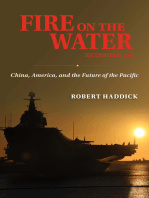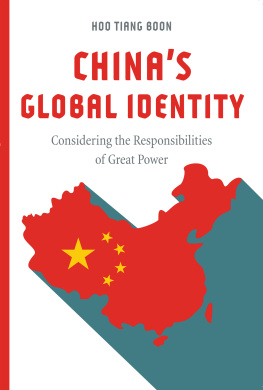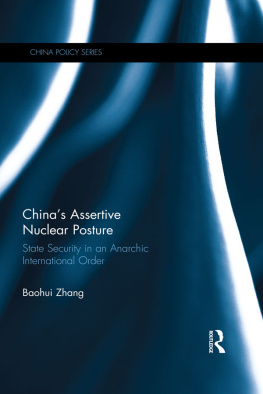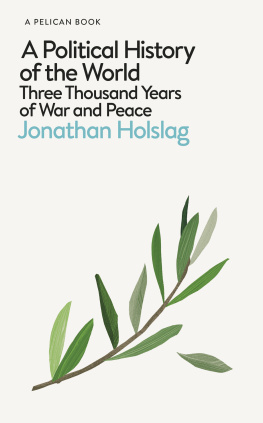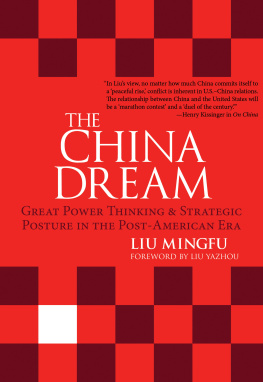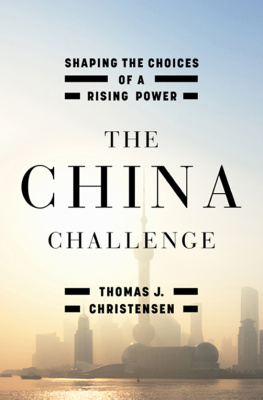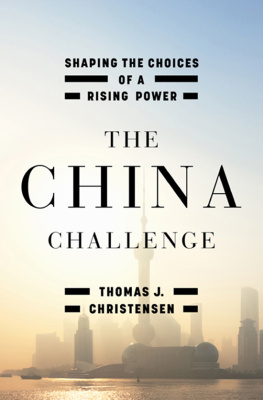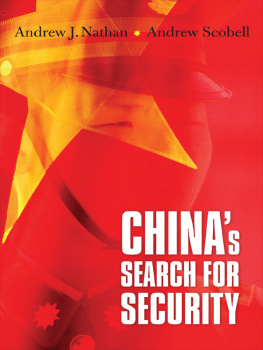Table of Contents
Guide
I wish to first acknowledge my intellectual debt to my good friend Professor Zhengyuan Fu. He was the first to argue, explicitly and compellingly, that the political system of the PRC is best understood as a revitalized restoration of Chinese imperial autocracy. His Autocratic Tradition and Chinese Politics (Cambridge University Press, 1994) is a tour de force, and should be read by anyone who wants to better understand the historical gestation of the party-states totalitarian impulses.
It is worth noting that Prof. Fu did his graduate workso to speakin Beijings Prison Number One. He was incarcerated there in 1958 for daring to criticize the party-state during the infamous Hundred Flowers episode. He spent the next twenty years working in the prisons print shop, while taking advantage of every spare moment to read through all the volumes in the prison library. There he pondered Chinese history in an environment that was, shall we say, extraordinarily conducive to understanding the decisive role that Legalism had played, and continues to play, in Chinese political institutions.
I am also fortunate not just in my friends, but in my two research assistants, Matthew McGinty and Allen Baldanza. Matthews years of teaching in China gave him a unique window into the minds of his Chinese students that I have drawn upon more than once in writing these chapters. He often reminds me that young people in China today have been taught to idolize two of the great mass murderers of history, Mao Zedong and the first emperor of the Qin dynasty (Qin Shihuangdi, r. 220210 B.C.), and for the same reason: They unified China. Nothing else matters.
Allen Baldanza, who studied Chinese in Beijing, also frequently encountered the ultranationalism and xenophobia of which I write. The description of the ruins of the Summer Palace in chapter seven, for example, owes much to his visit there. Both Allen and Matthew were indefatigable in tracking down references and scouring the latest news out of China. I cherish the hope that both will continue their studies in the years to come. Both have much to contribute to the China field.
Earlier versions of chapters two and three appeared in my Hegemon: Chinas Plan to Dominate Asia and the World (Encounter Books, 2000), and appear here with permission.
Throughout the entire process of writing this book, I have received incredible support and encouragement from the directors and staff of the Population Research Institute, including John Delmare, Professor Brian Scarnecchia, Dr. Christopher Manion, Father Linus Clovis, Colonel Vince E. Cruz, USMC (ret.), and Joel Bockrath, as well as long-time colleagues like Chuck DeVore.
Above all, I wish to acknowledge my family: my wife, Vera, and children, Julie, Steven, Matthew, Hannah, Andrew, Moriah, Thomas, Luke, and Chiara. I love you all more than you will ever know.
The Japanese are like a disease of the skin, but the Communists are like a disease of the heart.
CHIANG KAI-SHEK
There is only one challenge that today represents a clear and existential threat to Americas national interests.... The rise of the Peoples Republic of China.
HARRY J. KAZIANIS
China had a very high opinion of its own achievements and had nothing but disdain for other countries. This became a habit and was considered quite natural.
SUN YAT-SEN
T he political leader with the most experience fighting the Chinese Communist Partyfirst successfully and later much less sowas Nationalist leader Chiang Kai-shek. After the Japanese invasion of Manchuria in 1931, Chiang was under enormous pressure to declare war on the Empire of the Rising Sun. He refused, arguing that before the Japanese could be driven out of China, the Communist rebellion must first be put down. First internal pacification, then external resistance, he insisted. Even when the Japanese launched a major offensive in Shanghai in 1932, he threw his best divisions into the fray but in the end refused to be drawn into an all-out conflict.
The Japanese are like a disease of the skin, Chiang later explained to his restless army commanders, but the Communists are like a disease of the heart. By this he meant that the Japanese, with their powerful navy, could seize Chinas coastal cities almost at will, but they simply did not have the manpower or resources to take and hold the vast and heavily populated interior of China over time. He knew they would eventually be forced by time or circumstances to leave, although he could not have known that Chinas liberation would not be accomplished until 1945, only after the blood of nearly a half million Americans, and many times that number of Chinese, had been spilled.
The Communists, on the other hand, already controlled vast stretches of the Chinese heartland. And Chiang was familiar enough with their fanaticism to know that, unless their red armies were completely annihilated, they would continue their struggle until they were victorious. It was to be a battle to the deathyou die, I live, as the Chinese sayfor the very heart of China. In the end the disease of the heart that Chiang had warned about did indeed prove fatal to his own Nationalist government, and with its retreat to the island of Taiwan died the dream of a free and democratic China.
Chiang Kai-sheks remarkable metaphor can be used to illustrate the severity of the threats that America faces today. There are, as it turns out, a range of dangers that qualify as diseases of the skin. The radical Islamists clearly fall into this category. They will indeed fight to the death, but with their failing caliphates and their limited appeal even within the Muslim world itself, it is they who will die. Terror attackshowever much fear they may sporadically generate among the populationare a sign of weakness, not of strength. (Any tactic that results in the death of your most committed followers is ultimately self-defeating.) At the end of the day such attacks, however deadly they prove to innocent bystanders, pose no real danger to the world order America and the West have built.
Iran and North Korea are greater threats. A nuclear-armed Iran would threaten the Sunni Arab nations and jeopardize the very existence of Israel. In fact, the mullahs openly speak of using nuclear weapons to usher in the reign of the Twelfth Imam. As far as North Koreas nukes and missiles are concerned, these already constitute a serious threat to our allies in East Asia. That Kim Jong Un is additionally seeking, with help from across his countrys border with China, to acquire the ability to strike at the American homeland should give us all pause. But it would be a mistake to write off the Madman of Pyongyang as criminally insane, since he may be banking on his new weapons systems to intimidate the United States and its allies into trying to buy him off again, a ploy that his father successfully used against both the Clinton and Bush II administrations. Neither country, however, constitutes an existential threat to the continued existence of the Republic. Both are clearly diseases of the skin, both are able to inflict serious injury on their near neighbors, to be sure, but not to the world as currently constituted.
The question of whether Russia is a disease of the skin or of the heart is considerably more controversial. Obviously, if Putin were to launch his nuclear-tipped missiles against the West they would cause tremendous devastation. Yet the death of tens of millions of Westerners would not mean the end of Western civilization any more than the Holocaust, with its six million victims, meant the end of Jewish civilization. Civilizations are far more difficult to destroy than cities. They exist in the minds of men, in their values and beliefs, in their cultures and institutions. Moreover, Putin knows that Russia would be a smoldering ruin less than an hour after he ordered such an attack. Presumably he is no less afraid of mutually assured destruction than his Soviet predecessors were.
Next page

